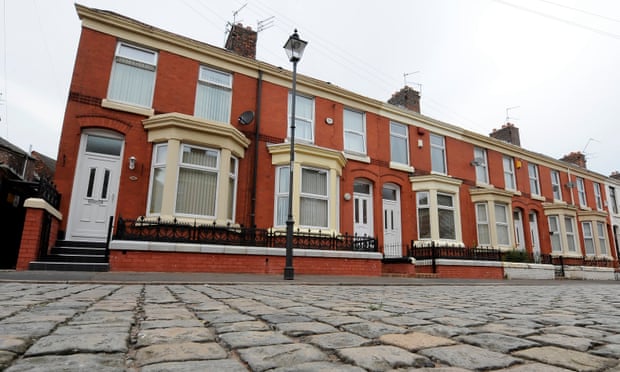The average price paid by Londoners for property has had hit a record high of 12 times earnings, and the gap between house prices in the capital and the UK’s other big cities is at its widest for 20 years, according to a an industry report.
Despite recent reports showing a slowdown at the top of London’s property market, the monthly survey by the property firm Hometrack shows that the difference in average prices between the capital and other large cities has continued to grow. The report says the widening gap “highlights a seemingly overvalued London market”.
Hometrack’s figures, which are based on Land Registry data and information from mortgage valuations, show that in Liverpool and Glasgow homes are about 75% cheaper than in London.
While the average price paid in the capital is now £437,700, in Glasgow it is £107,300, while in Liverpool it is £109,600. Even in Bristol, where the market has been busy and prices are now 16% above their 2007 peak, homes are changing hands for an average price of £231,300 – 47% below that in the capital.
According to the report, half the purchasers in the first half of the year had no property to sell, and this change in the mix of buyers put upward pressure on house prices. The report echoes other recent surveys that show a shortage of properties coming on to the market. The Royal Institution of Chartered Surveyors has reported several months of falling listings.
Across the UK’s 20 biggest cities, Hometrack said prices had increased by 8.3% since September 2014, but behind this headline the picture was mixed. In Aberdeen prices had dropped by 2% over the past 12 months, to an average of £193,000, as the low price of oil prompted job cuts and reduced demand for housing.
In Cambridge, however, prices rose by 11.2%, with residents and investors driving up the market. According to Hometrack’s figures, prices are now 43.6% above their pre-crisis peak, and have hit an average of £388,600.
In London, prices are now a higher multiple of earnings than ever before, while in other large cities the ratio is running at its long-term average. Hometrack said this suggested that price rises could spread as investors and developers looked for more affordable markets.
Richard Donnell, Hometrack’s director of research, said: “A changing mix of buyers is compounding the scarcity of housing for sale with rising numbers of first-time buyers and investors buying property while having nothing to sell. Only a recovery in the number of moves among existing homeowners or an increase in new supply will ease the current housing scarcity – which seems unlikely in the near term.”
He added: “London’s price earnings ratio is at an all-time high, while there remains value in most other regional cities. The pricing differential [with] London could well assist city regions to attract new investment as the cost of housing starts to influence decision-making for both households and businesses.”
On Thursday the National Association of Estate Agents became the latest organisation to report a lack of homes going on the market. It said the number of properties listed by each agent fell by a third in August, reaching an 11-year low. Estate agents had an average of 38 homes on their books during the month, down from 55 in July. Meanwhile, the number of potential buyers dropped from 462 to 408 per branch.
The NAEA’s managing director, Mark Hayward, said: “There are now 11 house hunters fighting after every available house – which isn’t sustainable. First-time buyers are finding themselves being squeezed out of the competition, which of course means it’s taking young buyers longer to get their foot on the first step of the ladder, which will in turn increase pressure on the rental market.”


